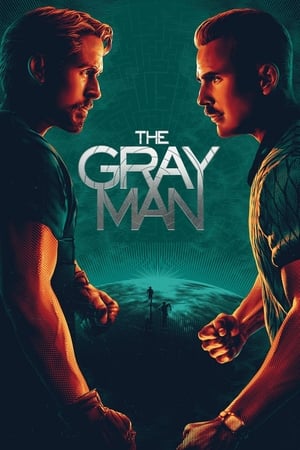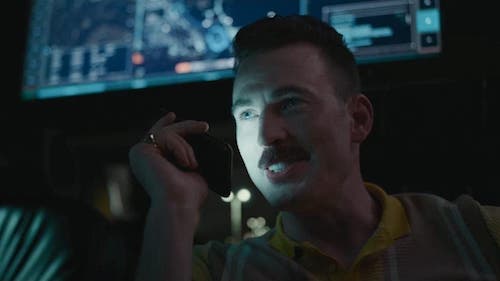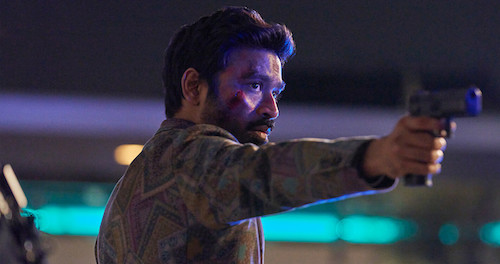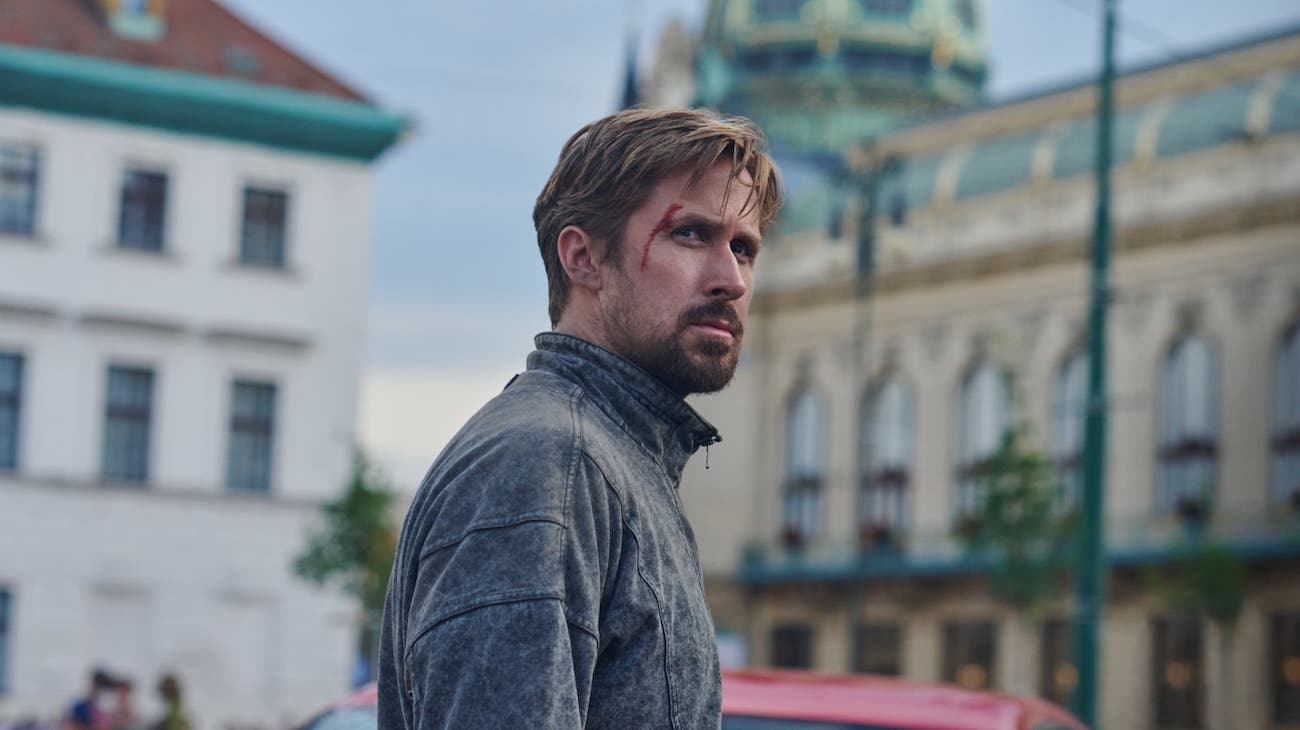
Watch Your Six
The Gray Man may very well be the end of an era. Over the last half a decade, Netflix has attempted to move into the blockbuster space, making hyper-expensive streaming projects to rival Hollywood's theatrical output, initially staking their claim with the putrid, runny dribble of offal known as 2017's Bright. They have continued to excrete turds of various consistencies onto their platform over the years, including the Chris Hemsworth vehicle Extraction in 2020 and the fabulously expensive, star-studded, empty-hearted Red Notice in 2021.
The Gray Man is their most expensive project to date, and despite the fact that it has already garnered the promise of sequel and spin-off, it marks what is essentially the end of this period of throwing yachtsful money at the wall to see what sticks. As their subscriber numbers are dropping, Netflix is starting to pull back on their indiscriminate spending, which is a very good thing if The Gray Man is the very best thing they can do with $200 million and 5 years of experience.
Laboring under the misapprehension that the success of Avengers: Endgame had something to do with the people directing it, Netflix hired Joe and Anthony Russo to helm this adaptation of the Mark Greaney dad novel of the same name. The film follows the titular gray man, Sierra Six (Ryan Gosling, returning to acting after his post-First Man sabbatical), who was released from prison in 2003 by Fitzroy (Billy Bob Thornton) in order to be trained as a superdeathkill agent for a shadowy CIA subgroup.
We pick up with Six in the present day on a mission in Bangkok, where he is partnered with Agent Dani Miranda (Ana de Armas). His hit goes awry when his mark reveals that he is also a Sierra agent and hangs Six an encrypted flash drive that contains information that may expose Carmichael (Regé-Jean Page), the crooked new head of the program. When Six goes AWOL with the flash drive, Carmichael hires sociopathic mercenary Lloyd Hansen (Chris Evans) to track him down by any means necessary.

I think it's important to start by covering the reason Netflix poured so much into The Gray Man in the first place: the cast. Typically a movie like this does feature a lot of folks coasting, but with one standout performance that shows that somebody was trying. This is not the case here. Billy Bob Thornton, especially, seems both bored and angry to be here. He's not phoning it in, because he's already using that phone to fire his agent. He's tin-can-with-a-string-ing it in.
Gosling and de Armas, on the other hand, are merely turning in bland performances. Their only function seems to be to remind you that you could be watching The Nice Guys or No Time to Die instead. Essentially every other member of the main cast is also ill-served either by the script or the direction. Chris Evans fails to be particularly compelling as what basically amounts to an evil Ed Helms from The Office, Jessica Henwick drowns in an illegible character that haphazardly swings between being the film's sole voice of reason and an amoral government cypher, Regé-Jean Page's nothingburger of a role whiffs his post-Bridgerton debutant moment, and Alfre Woodard (who plays another former CIA official) struggles to apply her talents to such sparkling dialogue as "if you copy it, you encrypt the encryption."
The only person who escapes unscathed is Tamil cinema legend Dhanush as Lloyd's right-hand-man Avik San, but that's partially because he's barely in the movie. However, when he applies a fraction of his Bollywood skills to the action nonsense, he at least makes it briefly legible and interesting.

Because, dear me, The Gray Man has a dreadful script. Its attempt at action quippery hews too close to Marvel dialogue, turning every character in the film into a delivery system for acid-tongued sarcasm that instantly strips away any sense of stakes. This is very bad, because the action sequences are too ill-rendered to deliver stakes on their own.
Many of the sequences deliver on the very basic level of watching people punch-kick each other in different places, but only if you force-quit your brain and actively try not to link one image to the next. Most of the big setpieces are completely incoherent, with vehicles intermittently becoming huge CGI Lego blocks that crash into one another, absolutely unmotivated Evil Dead-esque drone tracking shots that actively take the viewer away from the action only to dump them somewhere entirely different via an abrupt cut, and a digital blur rendering the color palette even less legible.
It is clear that the Russos have not learned the best lessons about color from Marvel. They attempt to spice up their typical "flat grey beast on a flat brown background" aesthetic with some lurid red and green lighting, but they clearly didn't learn how to shoot that lighting on the digital cameras they're using, because it frequently glitches out within the shot. Even the regular lights leave bizarre haloes in the center of the frame that muck up even basic dialogue scenes, without any sense of purpose for them being there.
Ultimately, the single good thing about The Gray Man is that it goes down easy enough, assuming you have already built up enough of a tolerance for the Russos' signature paramilitary jingoism. It is a globetrotting actioner with all the edges sanded off that can roll in one ear and out the other just as well as anything else you throw on you're folding your laundry or washing dishes. But sweet Jesus, try not to look at it too hard with your only set of human eyeballs. Be good to yourself.
Brennan Klein is a millennial who knows way more about 80's slasher movies than he has any right to. He's a former host of the Attack of the Queerwolf podcast and a current senior movie/TV news writer at Screen Rant. You can find his other reviews on his blog Popcorn Culture. Follow him on Twitter or Letterboxd, if you feel like it.
The Gray Man is their most expensive project to date, and despite the fact that it has already garnered the promise of sequel and spin-off, it marks what is essentially the end of this period of throwing yachtsful money at the wall to see what sticks. As their subscriber numbers are dropping, Netflix is starting to pull back on their indiscriminate spending, which is a very good thing if The Gray Man is the very best thing they can do with $200 million and 5 years of experience.
Laboring under the misapprehension that the success of Avengers: Endgame had something to do with the people directing it, Netflix hired Joe and Anthony Russo to helm this adaptation of the Mark Greaney dad novel of the same name. The film follows the titular gray man, Sierra Six (Ryan Gosling, returning to acting after his post-First Man sabbatical), who was released from prison in 2003 by Fitzroy (Billy Bob Thornton) in order to be trained as a superdeathkill agent for a shadowy CIA subgroup.
We pick up with Six in the present day on a mission in Bangkok, where he is partnered with Agent Dani Miranda (Ana de Armas). His hit goes awry when his mark reveals that he is also a Sierra agent and hangs Six an encrypted flash drive that contains information that may expose Carmichael (Regé-Jean Page), the crooked new head of the program. When Six goes AWOL with the flash drive, Carmichael hires sociopathic mercenary Lloyd Hansen (Chris Evans) to track him down by any means necessary.

I think it's important to start by covering the reason Netflix poured so much into The Gray Man in the first place: the cast. Typically a movie like this does feature a lot of folks coasting, but with one standout performance that shows that somebody was trying. This is not the case here. Billy Bob Thornton, especially, seems both bored and angry to be here. He's not phoning it in, because he's already using that phone to fire his agent. He's tin-can-with-a-string-ing it in.
Gosling and de Armas, on the other hand, are merely turning in bland performances. Their only function seems to be to remind you that you could be watching The Nice Guys or No Time to Die instead. Essentially every other member of the main cast is also ill-served either by the script or the direction. Chris Evans fails to be particularly compelling as what basically amounts to an evil Ed Helms from The Office, Jessica Henwick drowns in an illegible character that haphazardly swings between being the film's sole voice of reason and an amoral government cypher, Regé-Jean Page's nothingburger of a role whiffs his post-Bridgerton debutant moment, and Alfre Woodard (who plays another former CIA official) struggles to apply her talents to such sparkling dialogue as "if you copy it, you encrypt the encryption."
The only person who escapes unscathed is Tamil cinema legend Dhanush as Lloyd's right-hand-man Avik San, but that's partially because he's barely in the movie. However, when he applies a fraction of his Bollywood skills to the action nonsense, he at least makes it briefly legible and interesting.

Because, dear me, The Gray Man has a dreadful script. Its attempt at action quippery hews too close to Marvel dialogue, turning every character in the film into a delivery system for acid-tongued sarcasm that instantly strips away any sense of stakes. This is very bad, because the action sequences are too ill-rendered to deliver stakes on their own.
Many of the sequences deliver on the very basic level of watching people punch-kick each other in different places, but only if you force-quit your brain and actively try not to link one image to the next. Most of the big setpieces are completely incoherent, with vehicles intermittently becoming huge CGI Lego blocks that crash into one another, absolutely unmotivated Evil Dead-esque drone tracking shots that actively take the viewer away from the action only to dump them somewhere entirely different via an abrupt cut, and a digital blur rendering the color palette even less legible.
It is clear that the Russos have not learned the best lessons about color from Marvel. They attempt to spice up their typical "flat grey beast on a flat brown background" aesthetic with some lurid red and green lighting, but they clearly didn't learn how to shoot that lighting on the digital cameras they're using, because it frequently glitches out within the shot. Even the regular lights leave bizarre haloes in the center of the frame that muck up even basic dialogue scenes, without any sense of purpose for them being there.
Ultimately, the single good thing about The Gray Man is that it goes down easy enough, assuming you have already built up enough of a tolerance for the Russos' signature paramilitary jingoism. It is a globetrotting actioner with all the edges sanded off that can roll in one ear and out the other just as well as anything else you throw on you're folding your laundry or washing dishes. But sweet Jesus, try not to look at it too hard with your only set of human eyeballs. Be good to yourself.
Brennan Klein is a millennial who knows way more about 80's slasher movies than he has any right to. He's a former host of the Attack of the Queerwolf podcast and a current senior movie/TV news writer at Screen Rant. You can find his other reviews on his blog Popcorn Culture. Follow him on Twitter or Letterboxd, if you feel like it.
Categories: joyless mediocrity, netflix originals






